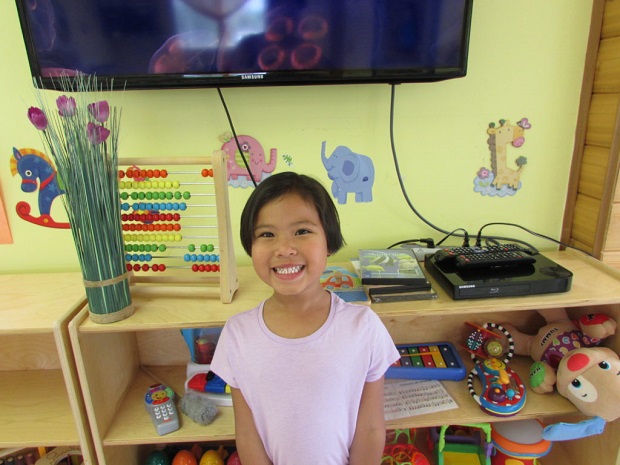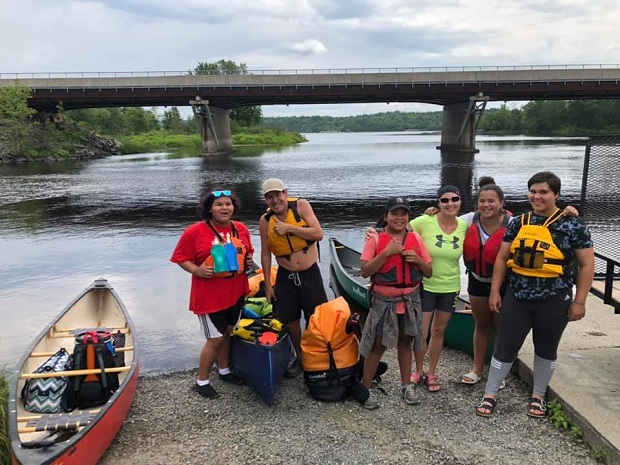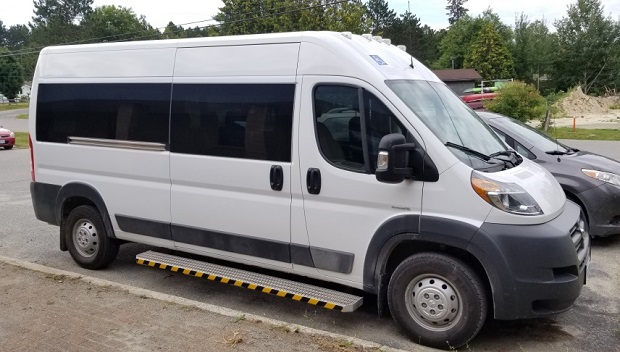Whitefish Lake First Nation
Health Services

Healthy Babies, Healthy Children
The Healthy Babies, Healthy Children Program provides support, encouragement and resources to individuals and families with children ages 0-6 years.
The Program funds activities that support early intervention strategies to address the learning and developmental needs of young children living in First Nations communities. The goal is to support early child development strategies.
Programming is centered around six components: education; health promotion; culture and language; nutrition; social support; and parental/family involvement.
Parents, guardians and other family members are the most important teachers in a child’s life. It helps parents and other caregivers learn and improve skills that contribute to healthy child development. It also works with families to help strengthen family relationships.
The Program encourages parents, families and community members to play an important role in running the Program. The Program also builds relationships with other community programs and services so that children get the best care.
This interactive program is offered through the Early Years Center located at 601 Gabode Drive. The Community Health Nurse also plays a vital role in the Early Years Centre supporting children and their families.
For more information please contact the Healthy Babies, Healthy Children Worker by phone at 705-692-1606.

Child and Youth Program
The Child and Youth Worker provides effective, productive and safe programming for children and youth of the community by planning, implementing and evaluating fun and exciting programs for the youth.
The program worker plans prevention programs along with the Health Programmers that will have a positive impact on children and families in living a healthy lifestyle. The Child and Youth Worker considers the following when designing a program while working with health professionals, Education and Social Service Professionals and outside agencies;
- Drugs and Alcohol prevention
- Leadership training/Youth empowerment
- Traditional and Cultural programming
Recruitment of volunteers to assist with youth programming is encouraged when planning and engaging youth programming with other target groups of the community, elders, children, adults.
The Child and Youth Worker operates the Youth Centre ensuring the centre is open in the evenings and weekends. The worker works with the youth in planning programs and will also
The age category for this program is 7—21 years of age.
Please contact: Child and Youth Worker (705)-692-0670
Wellness – Mental Health, Addictions & Traditional Health
Will facilitate topics of mental health and addictions for the community’s education and awareness that allows people in the community to see how to remove barriers and choose a healthy lifestyle.
Cultural and/or western-based methods most appropriate in the education of the community. Traditional and seasonal celebrations will be utilized and aligned with healthy lifestyle choices.
Clinical
- Assist individuals/families through case management model (intake, assessments and develop a plan of care)
- Provide one on one counselling
- Develop and facilitate therapeutic support groups
- Complete necessary referrals
- Advocacy
- Crisis intervention and support
Programs
- Workshops and information session relating to Mental Health and Addiction such as
- Anger Management
- Responsible Gambling Strategy
- Harm Reduction
- Assist with Community Events
- Individual / Family Activities/Events such as
- National Addiction Awareness Week
- National Family Week
- Cultural/Traditional Activities such as
- Medicine Picking
- Coordinate Traditional Practices/Activities such as
- Ceremonies
- Traditional Healer Visits
- Teachings
- Medicine Picking
Wellness Coordinators can be reached at
(705) 692-3651
Ext. 223 (Mental Health)
Ext. 250 (Addictions)

Patient Transportation Program
Home and Community care offers transportation to Sudbury every Monday for elders and HCC clients. Trip pickups are either 9:00 am or 1:00 pm They also offer transportation on Wednesday afternoons to Lively only.
Atikameksheng Anishnawbek Shawenekezhik Health Centre coordinates the medical transportation program funded by Indigenous Services Canada. The goal of the program is to provide coordinate medical transportation to registered First Nations community members living in Atikameksheng Anishnawbek.
The program will assist individuals who do not have the means to get to their medical appointments. The program provides; local medical transportation, urgent medical transportation and will assist clients with long distance medical transportation.
Indigenous Services Canada provides Atikameksheng Anishnawbek with funds to administer this program through a Contribution Agreement guided by the NIHB Medical Transportation Policy Framework. The Framework can be found at the link below and defines the policies and benefits under which the NIHB Program will fund eligible registered First Nations and recognized Inuit (clients) with access to medically required health services not provided on the reserve or in the community of residence. Medical transportation benefits are funded in accordance with the mandate of the NIHB Program, which includes providing non-insured health benefits that are appropriate to the needs of the clients and sustainable. The NIHB Medical Transportation Policy Framework sets out a clear definition as to the eligibility of clients, the types of benefits to be provided and criteria under which they will be funded.
The General Principles of the program are:
- Medical transportation benefits are funded in accordance with the policies set out in this framework, to assist clients to access medically required health services that cannot be obtained on the reserve or in the community of residence, when access would otherwise be denied. Exceptions may be granted, with justification and First nations and Inuit Health Branch (FNIHB) approval, to meet exceptional needs.
- Access to medically required health services may include financial assistance to the client or arranging for the provision of services from the reserve or community of residence when the following conditions are met:
- The client has exhausted all other available sources of benefits for which they are eligible under provincial/territorial health or social programs, other publicly funded programs (e.g., motor vehicle insurance, Workers Compensation) or private insurance plans;
- Travel is to the nearest appropriate health professional or health facility (when health professionals are brought into the community to provide the service, the community facility is considered the nearest appropriate facility);
- The most economical and efficient means of transportation is used, taking into consideration the urgency of the situation and medical condition of the client;
- An FNIHB or First Nations or Inuit Health Authority or organization representative or on-site medical professional has determined that medically required health services are not available on the reserve or community of residence;
- Transportation to health services is coordinated to ensure maximum cost-effectiveness;
- Transportation benefits are provided when prior approved by FNIHB or a First Nations or Inuit Health Authority or organization or post approved upon medical justification if consistent with the framework;
- In emergency situations, when prior approval has not been obtained, expenses may be reimbursed by FNIHB or a First Nations or Inuit Health Authority or organization when appropriate medical justification is provided to support the medical emergency and approved after the fact; and
- When public transit is not available.
- Medical transportation benefits may be provided for clients to access the following types of medically necessary health services:
- medical services defined as insured services by provincial/territorial health plans (e.g., appointments with a physician, hospital care);
- diagnostic tests and medical treatments ordered by a physician or other health professional within his or her scope of practice and which are covered by provincial/territorial health plans;
- publically-funded alcohol, solvent, drug abuse, and detox treatment;
- traditional healers;
- Non-Insured Health Benefits (vision, dental, mental health, medical supplies, and equipment); and
- Publically-funded preventative screening e.g. breast cancer screening (where coordination with other medical travel is not feasible).
- Medical transportation benefits include ground, water, and air travel, meals and accommodations. For more information, refer to Sections 3 (Modes of Transportation), 4 (Emergency Transportation) and 9 (Meals and Accommodations).
- Medical transportation benefits may be provided for an approved escort. Refer to Section 5 (Client Escorts).
- In cases where a client is required to travel repeatedly on a long term basis to access medical care/treatment, medical transportation benefits will be provided for up to four months. Extensions may be considered on an exception basis.
- Medical transportation benefits may be provided when the client is referred by the provincial/territorial health care authority for medically required health services to a facility outside of Canada when such services are covered by a provincial/territorial health plan and the medical transportation benefits are not covered by provincial/territorial health or social programs, other publicly funded programs or private insurance.
- When a request for medical transportation is denied, an appeal process is available. Appeals must be initiated by the client or by a designate acting on their behalf. For more information, refer to Appendix E (Appeal Process), or contact the NIHB Regional Office.
Source: https://atikamekshenganishnawbek.ca/program/healthy-babies-healthy-children/

|